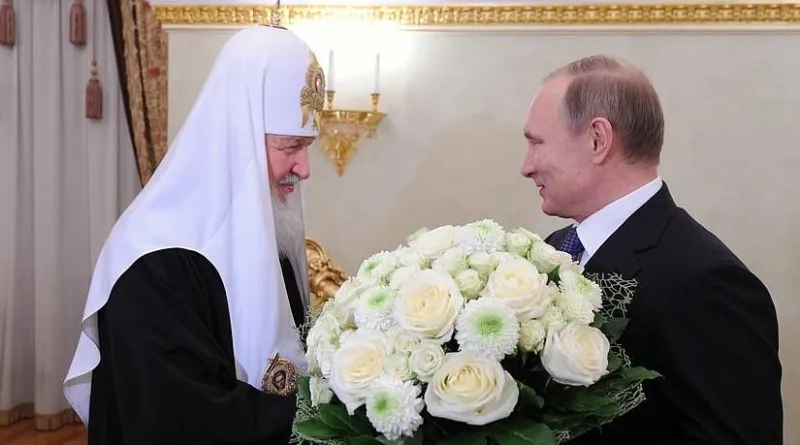
Patriarch Kirill has sent a clear signal that he is “with Putin and not with his flock” or even the basic principles of his faith, Sergey Chapnin says. Many Russian faithful are going along with him, but many are not, outraged that the church can’t even follow its own teachings call things “by their own names – war is war and aggression is aggression.”
And some of them are speaking out, the religious affairs journalist says. Father Ioann Budrin of Kostroma told his parishioners and then posted online the following: “We cannot shamefully close our eyes and call black white and good evil … The blood of the residents of Ukraine will remain on the hands not only of the rulers of Russia and soldiers who are carrying out these orders” (theins.ru/opinions/sergei-chapnin/249302).
“Their blood,” Father Budrin said, “is on the hands of each of us who approve this war or simply remain silent.”
The church hierarchs didn’t bring him into line, but the state did. A snitch in his congregation denounced him, his homily was removed from the church’s website, and he was fined 35,000 rubles (300 US dollars) for “discrediting the use of the Armed Forces of the Russian Federation to defend the interests of the Russian Federation and its citizens.”
The Russian authorities have made it clear that they will stamp out all dissent against Putin’s war even if it comes from abroad. After an Orthodox congregation in Amsterdam denounced the war and broke with the Moscow Patriarchate, Moscow brought such pressure to bear on this group that it had to turn to the Dutch authorities for its defense.
As Chapnin observes, “the Official Church, the only voice of which during the days of this war has become Kirill himself, has turned out to be bankrupt not only from a Biblical but also from a moral point of view.” And it has also shown in the Budrin case and others that it lacks the ability to enforce its own position but must rely on the state organs.
That is a clear sign of its own internal collapse, a collapse brought on by its slavish obedience to the Kremlin; and however much the words of Kirill and his accomplices please the Russian leader, they are unlikely to be able to save the situation for the church and its increasingly restive parishioners.
One additional and even more important sign of this: during wars, most believers turn to the church for solace. This time, with Putin’s war in Ukraine, it does not appear that Russians are doing so. And if they aren’t attending now, they are unlikely to come back if and when the war ends, leaving Kirill’s church even weaker than it was before.
